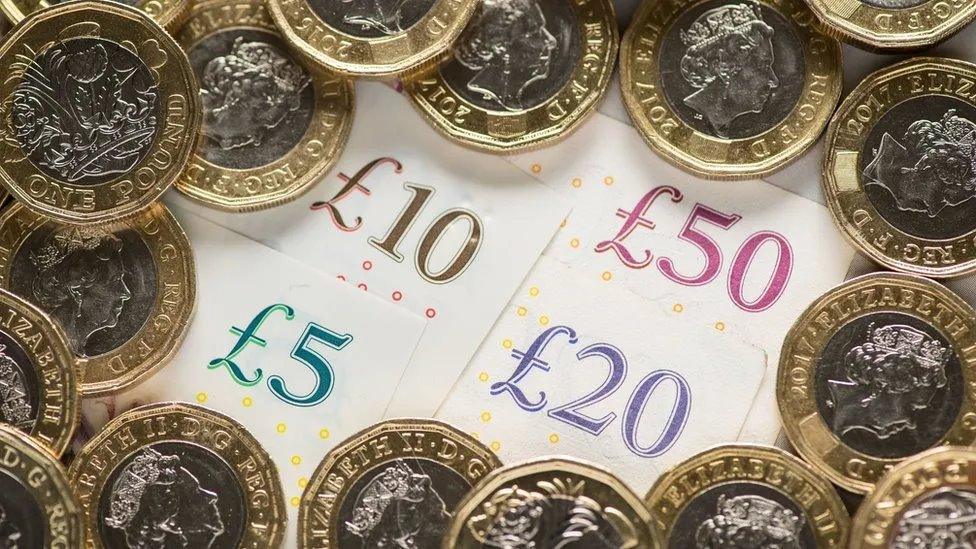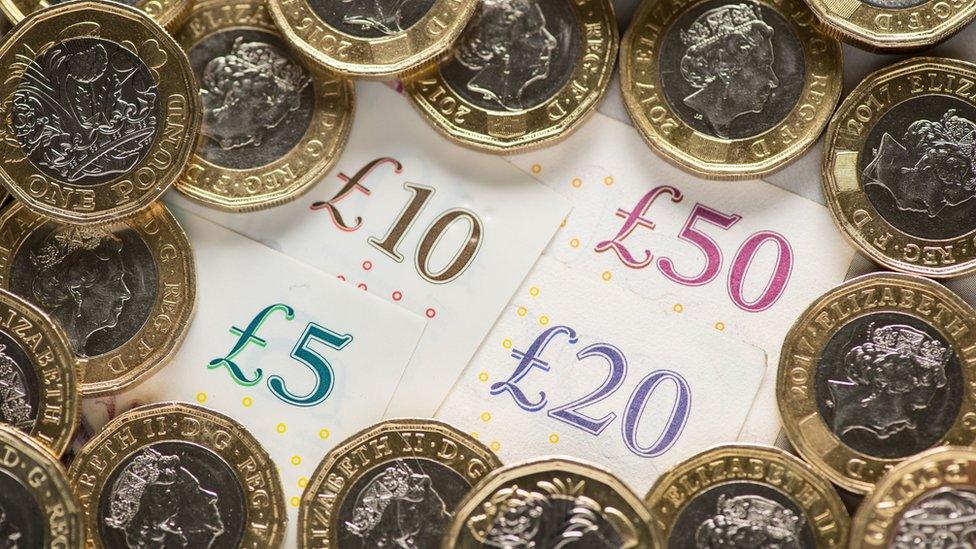Minimum Wage: Increase could 'massively' impact businesses
- Published

Under the proposals the adult minimum wage rate would rise to 66% of median earnings by 2030
Increases to the minimum wage could "massively" impact costs for businesses, according to members of Guernsey's construction industry.
In May, the States will consult on proposals which would see the adult minimum wage rate rise to 66% of median earnings by 2030.
They want to hear from employers and workers who are paid minimum wage.
The Guernsey Building Trades Employers Association thinks minimum wage should be set relative to the cost of living.
Currently, the minimum wage is set at £10.65 per hour for over 18s.
'Massive increase'
Steve Roussel from the Guernsey Building Trades Employers Association, said: "[minimum wage] should be based on the amount people need to have a decent and acceptable cost of living.
"For the past few years the minimum wages have been increasing above the rate of the inflation based on being set at 60 percent of the median wage, and that has been inflationary."
He told BBC Radio Guernsey: "The concern is that it's going to put inflation onto businesses."
"Some might be able to absorb these costs, but other industries like hospitality and social care, where a lot of people are on minimum wage, that increase above inflation is going to have a massive increase on their costs."
Peter Roffey, president of the Committee for Employment & Social Security, thinks the proposals are "reasonable".
"We looked at other territories and places like Jersey and the UK have all set a target of moving to two thirds of median earnings.
So, we thought that was a reasonable set of proposals to go out and consult on."
He added: "We welcome feedback from people like the [Guernsey Building Trades Employers Association] because we want to hear from employers and organisations representing workers, and from the community as a whole."

Follow BBC Guernsey on X (formerly Twitter), external and Facebook, external. Send your story ideas to channel.islands@bbc.co.uk, external.
- Published19 February 2024
